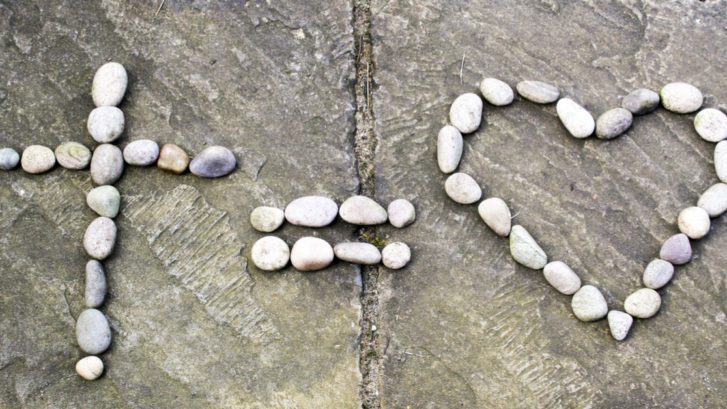In our second reading today you heard a letter from Paul to the Corinthians, and I would not be surprised if you knew absolutely nothing about the city of Corinth. Corinth was a cosmopolitan city. People flocked there from all regions of the Roman Empire. It was a center of government, of trade, of sports, and was also known as sin city.
To live like a Corinthian came to mean “wallow in immorality.” At a recent excavation of the city, they uncovered in one small area 33 taverns. What happened in Corinth, stayed in Corinth.
This was the city to which Paul brought Christianity, and five years later, he writes them the letter we have just heard. And we hear that this Corinthian church is divided, torn into four factions following different leaders all going their own way. Paul writes to them to try to heal the divisions. He likens the Church to the human body with its many parts where no single part is insignificant, without worth or value, and he tells them that is what the church should be like: all different parts working together with Christ as the head and every part of the body linked to Christ and to each other.
When we look at our Church today I suspect that we could recognize ourselves in some of the conflicts of the Corinthian Christians. Roman Catholics no longer all think the same way, and we have all been hurt by recent scandals: we now have contrasting opinions on almost everything. But, in spite of any differences, we may have, we cannot lose sight of the fact that we form a single body because we are linked to the Risen Christ and we call ourselves His body.
You and I are linked to Him by our baptism. And in St. Paul’s words, because there is one bread, many as we are in number, we are one body for we share the one bread. When we approach to receive Holy Communion we become what we receive: the Body of Christ. Not that dogma and morality, how we think and what we do, are unimportant. Only that, even more importantly, God’s water and God’s bread transforms us, changes us from isolated individuals to a single body that Christ claims as His own. And His command to us is to love one another. How? As I have loved you.
It was in the 1980s that I worked part-time as a prison chaplain. There was a large HIV/ AIDS population in the prison hospital: isolated, cut off from the rest of the world, these AIDS patients all were very sick, thin and weak. The ward was a large room lined with beds. There was always noise, even during Mass as the nurses had to take care of the men, but I will always remember the silence that befell the ward the day we read the Gospel of Jesus reaching out, touching the leper.
Some of the men tried to decorate the card table that was used as an altar. They made paper flowers and painted a cross to hang in front of the table. One made a banner that said, “Love is all we have for now. What we don’t have is time.”
When we look around our world, at the war, famine, the violence, we may not see much love. But when it is a question of what it means to be human, to be Christian, what makes the difference is love.
St. Paul put it another way to the Corinthians in our first reading. He said, “In the end, only faith, hope and love are left. But the greatest of these is love.” Love, after all, is the one gift that can make our world more human than Corinth. Other gifts can help, economics and education, health and housing. But without love, unless deep down we care, and yes, unless we live Christ’s command, love the Lord, your God, with all your heart, love your neighbor as yourself, we will be little more than a contemporary Corinth.
As a Church, as a parish, as an individual, I may indeed go to Mass and receive Christ, but without love, the rest is a charade, playacting. And when the final judgment is passed on me it will rest on one four-letter word. Did you really love?
With that question goes the second line of the banner: what we do not have is time. That is true not only of those who have a serious illness but it harasses all of us. No one can promise themselves time, however young, however strong. I have never forgotten a sign I read years ago in a convent chapel. It said, “Priest of God, say this Mass as if it were your first Mass. As if it were your last Mass. As if it were your only Mass.” Something similar can be said to each of you. Live this day as if it were your first day. As if it were your last day. As if it were your only day. Each new day is a chance to be more Christ-like.
My friends, a well-known singer and bandleader wrote in his autobiography, “Women, horses, cars, clothes: I did it all. And do you know what that is called, ladies and gentlemen? It is called living.”
Wouldn’t it be more satisfying if someday you could say this about yourself? People, those I liked and those I didn’t, all people but especially the homeless and the hopeless, the naked, and the hungry, the lonely and the unloved, those who are different from me, drug addicted and the AIDS-afflicted, I did not do it all, but I did what I could. And, do you know what that is called, ladies and gentlemen? It is called loving. Love is all we have, for now, what we do not have is time.


